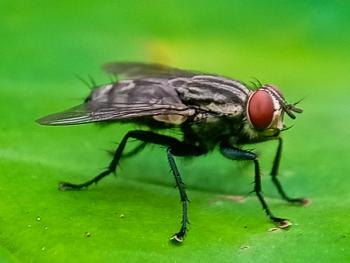
Heartworm Q&A: What do I need to know about heat-treating samples?
Dr. Byron Blagburn lays out the basics for practicing veterinariansif you suspect heartworm infection but get a negative antigen result, consider heat-treating the sample.
One of the more interesting developments to arise recently in the area of diagnosing heartworm disease is the use of heat treatment in testing. Researchers have found that applying heat to antigen-negative serum samples will sometimes cause antigens to “show up,” reversing the negative result to positive. They suspect that antigens bind with heartworm antibodies that are also circulating in the blood, forming immune complexes that aren't detected by standard antigen tests, and heat breaks down these bonds.
During the American Heartworm Society's recent triennial symposium, Byron Blagburn, PhD, parasitologist at Auburn University, answered questions about heat treatment with a focus on what practicing veterinarians need to know. (Click on the videos, or find an edited transcript below.)
Question: What should veterinarians know about heat treatment of serum samples in heartworm testing?
Answer: Immunoreversal, antigen blocking, the concept of disassociating antigen and antibody-this is actually not new. Many heartworm tests that were first introduced into the market had a mandated step in which you disassociated antibodies using an enzyme or acid. The problem was that most veterinarians did not want to incorporate that step-it was too complicated-so the manufacturers eliminated it.
But in light of recent research at Oklahoma State University, we have come to refocus on heat treatment. If you're a practicing veterinarian, the question is, how do you embrace this concept and apply it? And I think it's pretty simple: If you have a suspicion of heartworm in a patient and get a negative antigen test result, then heat treatment is a good idea. If a dog presents in a heartworm-endemic area or has been shipped from a heartworm-endemic area, or if a dog is suggestive of heartworm disease based on testing and radiographs, and yet it's antigen-negative, that patient might be a candidate for heat treatment.
Also, veterinarians often have questions about compliance with heartworm prevention or the number of doses administered. In these cases some worms might be dying and others aren't, so they induce antibody responses that bind up antigen and cloud the issue. These dogs also might be candidates for heat treatment.
Q: What do we know about heat treatment of serum samples in cats?
A: Feline heartworm infection definitely remains confusing, and that's because it's so atypical. Cats present with diseases in ways that are very different from dogs. And because cats have low heartworm burdens, they're much more likely to be antigen-negative. But there's evidence that the reversal phenomenon works for feline serum too-heat treatment of feline samples in which you suspect infection may convert the results to heartworm-positive status.
An important point regarding feline heartworm: When you heat-treat antibody-positive serum, you increase the number of antigen positives and there's a better correlation between antigen and antibody. And that makes sense. The point is that combining heat treatment and antigen and antibody tests will get you closer to a more accurate result.
Newsletter
From exam room tips to practice management insights, get trusted veterinary news delivered straight to your inbox—subscribe to dvm360.





